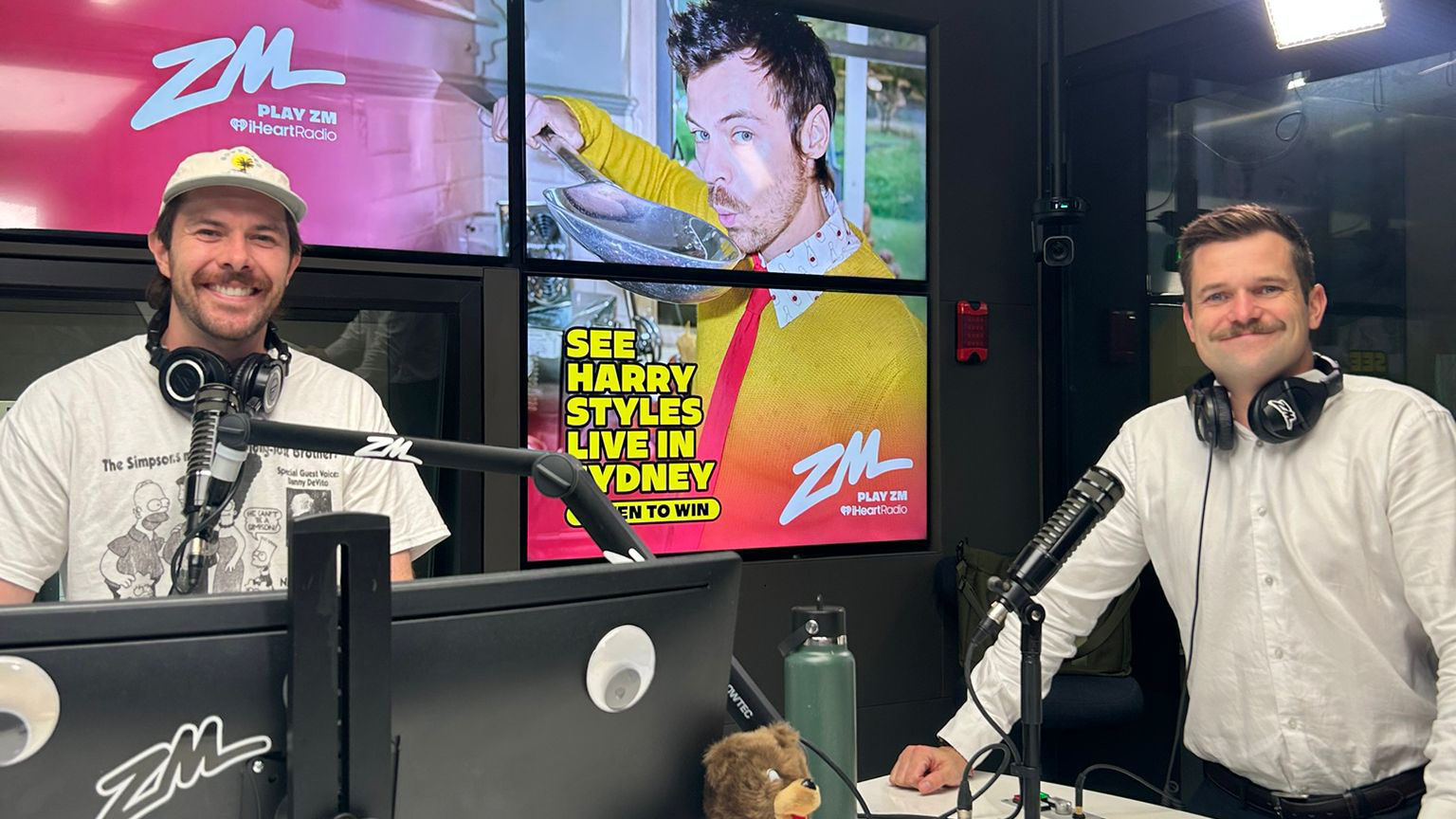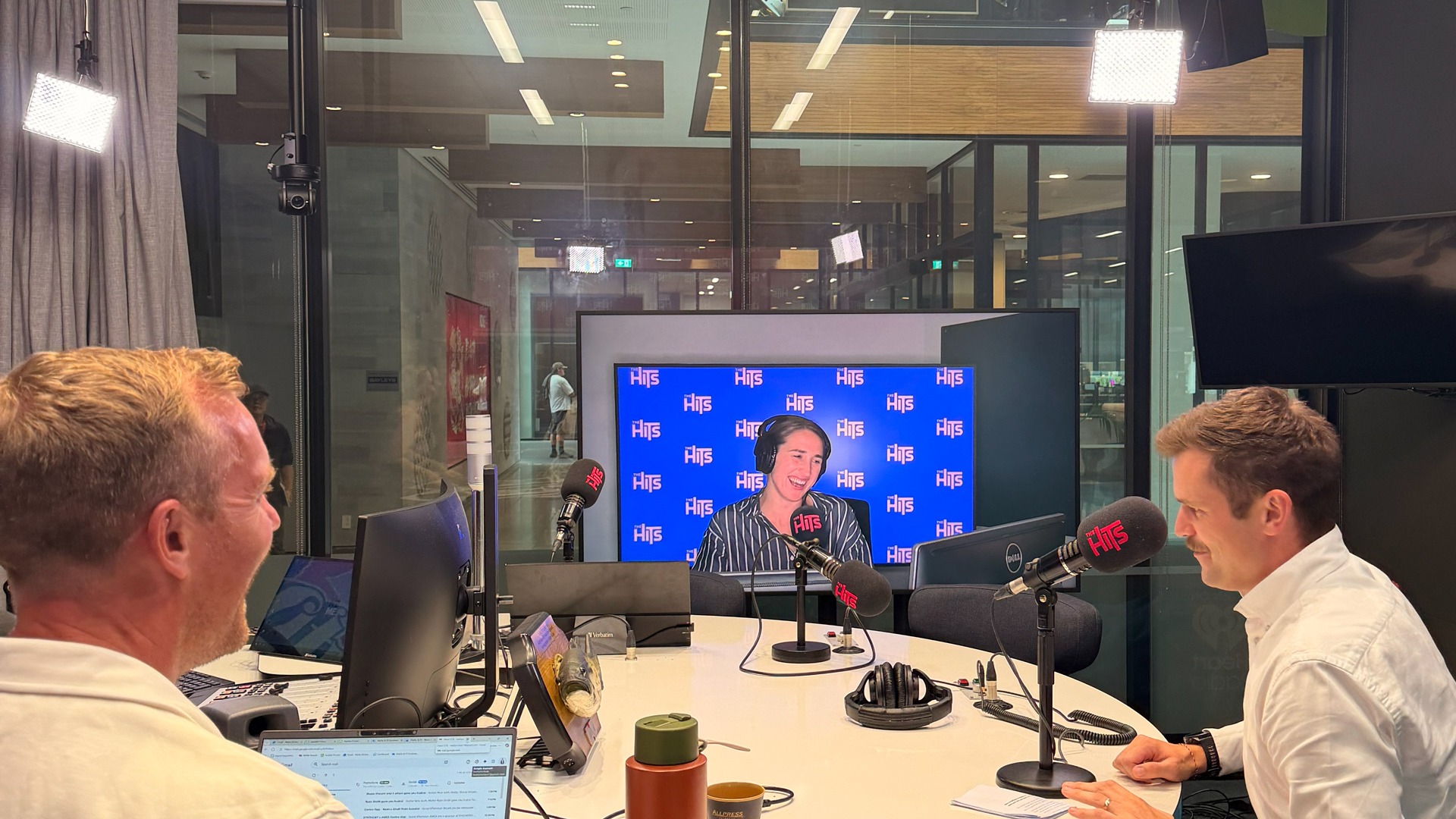No matter how young or old you are, smart financial decisions today will help build the future you want tomorrow. In today’s episode, Milford’s Head of Wealth Management Philip Morgan Rees, talks to Ryan Bridge about some simple steps to take on your life journey that could have a big impact after 65.
Listen.
Click here to download the MP3 file or listen to the podcast on your favourite platform:
Read.
Bridge talks Business: 12 November 2024
Episode Transcript
Ryan Bridge
Kia ora and welcome to Episode 14 of Bridge Talks Business with Milford. Great to have your company. This week, we’re talking retirement. For a couple living in one of our big cities, it’s estimated that you’ll need close to a million dollars to retire relatively comfortably with choices. The gap between the pension and living costs is growing bigger each and every year. Experts say we should prepare early and look at working more, working during retirement or investing in growth funds. We’ll look at the latter shortly, but first, here’s your top five business bits from the past week.
1. Republicans are in the House. The red team all but confirming a clean sweep of the Presidency, the House and the Senate in last week’s US election. This means power to pass laws and appoint key officials, though how Trump does on tariffs and immigration is TBC.
2. Markets breathed a sigh of relief for two reasons. Number one, the result wasn’t contested. And number two, the result was seen as pro-business. Bonds were surprisingly well-behaved given growth and inflation expectations.
3. US shares and the US dollar sharply outperformed the rest of the world last week, as investors began pricing in an America first.
4. The Federal Reserve lowered US interest rates by a quarter of a cent last week. With, despite the higher growth and inflation outcomes since their last meeting, markets are winding back their expectations of further cuts with just three quarters of a percent expected pre-Christmas.
5. This week, the latest US inflation reading – a hot print could cause problems for the bond market, which could in turn cause problems for the highly valued share market.
Now, if the number at the top of the episode scared you a little bit, that’s because a million dollars is a lot of money. But whatever your number might be, the amount needed for a retirement that you’re comfortable with, the best advice is to start early. A reminder, this segment is informational only and should not be considered financial advice. This week, I’m pleased to have Phil Morgan Rees on the programme, Head of Wealth Management at Milford. Phil, welcome.
Phil Morgan Rees
Thanks very much, Ryan. Delighted to be here.
Ryan Bridge
Great to have you here. I was just talking about those numbers which come from a Massey University study. Quite daunting to think about. How do most people approach it? Do most people keep working? Do they try and build the wealth before they get there? What do you see?
Phil Morgan Rees
Sort of all of the above, really. But what I’d like to start with is just get people to take a step back and think that this sort of planning towards retirement and through into retirement, think of it in three stages. There’s the early stage, which is all about accumulation, whatever that means. In our world, that’s KiwiSaver or investing in KiwiSaver, but it could be other investments. It could be property. That’s all about accumulating the assets that you will one day use. Then when we get to about 54, that’s about pre-retirement. That’s about figuring out where do I think I’m going to be? What are my options and what do I need to do for the next 10 years? And then generally from 65 onwards, it’s planning how to use those assets or the combination of activities. So working is one of those. And New Zealand has a high percentage of people who still work. Compared to the UK, for example, it’s more than double in retirement. And in that 65 to 69 age group, 44% of people still work. So that’s definitely a way of managing. But using other assets, you alluded to the report by Massey University. What that report says further on was the effect of most households spend more than NZ Super. So there’s got to be something to bridge the gap.
Ryan Bridge
You basically have to do something, right? So you said that the early stage is accumulating the assets. What types of assets do people generally go for, and is it good to have a mix?
Phil Morgan Rees
Diversification tells you it’s always good to have a mix. So there’s been a bit of a history with New Zealanders of putting all the eggs in one basket, which is property. But you go to other jurisdictions, the UK, the US and so on. And there’s a mix of assets used to accumulate. So the key thing is to start early, whichever one it is. And if you think about investing in markets, Albert Einstein, who was a pretty smart guy, called Compounding, the eighth wonder of the world. It’s all about time in the market. It’s returns on returns. It’s a wonderful thing. So the earlier you start, the more powerful that compounding is.
Ryan Bridge
I’ll get to 54 in a second. But how do you work out how long you’re going to live for?
Phil Morgan Rees
You don’t. So when you get to your decumulation, the industry parlance is decumulation phase, or using up your assets, you’ve got a number of risks to think about. One of them we call in the industry longevity risk, which is you simply don’t know how long you’re going to last. There’s some reference points. So New Zealand stats provide some reference points. So someone turning 65 this year as a male will likely live to 86 and a female to 88. So think of it this way. At 65, you’re planning for a 20 or so year period, but more likely a 20 to 32 year period. So that’s quite a broad range. So it really is looking at the options and testing what ifs, as to how much do I need and how long will it last?
Ryan Bridge
So at what age do you really … because that sounds frightening to me. So potential for 32 years with no salary and wage income, potentially. At what age do you realistically need to start thinking about that, planning for that?
Phil Morgan Rees
Generally, it’s 10 years before. So let’s assume we’re talking about 65. So from about 54 onwards, you really are in a position to start thinking about what your options are and what sort of area you’re going to find yourself in and what you need to do to boost that. So I really think that pre-retirement age starts for most people around 54. And then you’ve got 10 years to attack what’s left of the problem.
Ryan Bridge
You mentioned decumulation. What exactly is that? What are you talking about?
Phil Morgan Rees
Decumulation is the opposite of accumulation, which if one is building up your assets, the other one is using your assets. And actually, it’s not just using your assets. It’s quite a big deal mentally to spend the things you’ve got, because you think you’ve amassed these assets. That’s it. I’m using this, you know. So psychologically, it’s quite an interesting and can be challenging thing to go through, to say I’m spending this. I’m never going to have it again.
Ryan Bridge
Well, you spend your whole life trying to get it. Yep. You finally achieve it. And then you just sort of not give it all away, but get rid of it.
Phil Morgan Rees
But you use it, right? And it’s important to think about how it gets used, which is why speaking to an adviser is pretty good. So typically, we see there are three phases in retirement, and therefore, there are three phases of spending. So broadly speaking, the early years tend to be more active in retirement, and therefore there’s more spending. And you can sort of equate it quite simply to, well, I’m doing a lot more travel. I’m spending time with family who might be in Oz or maybe overseas, and that costs a lot more. So my rate of spending is higher. And then and some people call those the go-go years. And then you’ve got the middle period, which is more of a simpler rhythm. And because of that, the spending is lower.
And then you’ve got the latter years in retirement where attention turns to spending in other ways. So it’s making sure there’s money there for health care spending, if you need it. You could be experiencing different things, such as you’d want to be downsizing at that point in time. And that really has an influence on how you spend. So there are three different ways we see people spending money, even in retirement. It’s not just one, I’m here for what’s going to happen. It’s really thinking that through and planning it. And the good thing with talking to an adviser is you can model some of those cash flows and see what they look like. And then there’s nothing more heartening to going through a session of modeling and finding out that you do have enough, because you’ve taken it seriously to figure it out.
Ryan Bridge
Yeah. So you can actually do like a detailed assessment for people to their particular circumstances well ahead of time. Because I guess that would that would put a lot of people’s minds at ease potentially or or freak them out depending on depending on which way things are going for them.
Phil Morgan Rees
But even then, the earlier you start thinking about that, the better positioned you are. So, you know, a plan is really good. A plan is only as good as the planning. You know, the planning is the most important feature of a plan. I think it was Churchill who said plans are of little importance. Planning is essential. So having a plan, you can start that process at 54 and think about that and say, what, what would this look like? What would that look like? But certainly once you’re at the stage of using up your assets, looking at modeling, what are my regular outgoings? What am I anticipating spending on things that are not so regular but necessary? So holidays, travel, bucket list, replacing cars, home renovation, anything like that, modeling those things, what things could come in? Will there be any inheritance? What other flows are there? Do I have other assets like a rental I wish to dispose of at some point because it takes a lot of work? And I’ll put that in the portfolio and model that. It all ends up as retirement income planning. And those later stages, you can think, well, well, I want to give some money to the kids or do I want to think, well, if I live this way with all these things that I want to do and I’ve quantified them well, what’s left for the next generation and how will I use that? So all those things can be considered, thought through and planned.
Ryan Bridge
When people come to you, it’s obviously quite a pivotal time in their lives and, I imagine, quite an emotional process in some respects as well. Do people have regrets about things or do they, I guess that’s why they’re coming to you so they don’t have regrets. But what do people say about the way that they feel when they’re doing this?
Phil Morgan Rees
Well, it’s really interesting. There are a lot of things to work through and very few of them are financial. So that life change is a big deal. So I’ve spent 40 years, let’s call it, going into an office and coming home again. If I stopped doing that, what am I going to do? What’s going to happen to my rhythm? I’ve also had a really clear purpose. So what’s my purpose going to be? I’ve got a lot of energy and I’m very active. Where’s that energy going to go? These are really important topics for people to consider, of which money is the enabler. Have you seen the series Blue Zones on Netflix?
Ryan Bridge
Yes.
Phil Morgan Rees
Right. They don’t talk about finance. They talk about purpose. They talk about relationships. They talk about health. They talk about movement. They talk about community.
Ryan Bridge
Food.
Phil Morgan Rees
Food. They talk about community. All those things need to be faced. If I’m not going into the office on Monday, what would I be doing? I wouldn’t be at home because my wife wouldn’t let me. But what would I be doing? Those things. Where’s my purpose going to be? How is it going to impact my relationships? Let alone, we touched on it earlier, I’m now spending all these assets that I’ve accumulated. That’s a big deal. So there’s a lot to go through. So the more help you can get, certainly in our world, in terms of financial advice and looking at the long term and how things can be achieved, the better.
Ryan Bridge
Do you advise people that they should stay in their homes, if they own their own home, to try and keep that asset as long as they can?
Phil Morgan Rees
We typically don’t advise on that. We always want to understand what their goals are. So we might help them by having probing questions to define what that goal is. I recently visited my mother, who’s in Wales, and at 92 she’s very clear she wants to stay in her home.
Ryan Bridge
Same with my grandmother. Okay, so there’s a process here that’s build your wealth, build your assets, do it from as young as you can, and then you reckon about 54 is the next stage, at which time you go and you get some advice and you start planning for that retirement phase, and then there’s retirement itself and starting the decumulation, as you say, which is getting rid of the stuff that you’ve just built up and keeping you going for as long as you might need.
Phil Morgan Rees
Yep, that’s right. And that last phase, you’ve used the term a few times, it’s daunting, but actually, no one can give you certainty, but having a plan helps create an element of certainty, an element of control, and as human beings, we like a degree of control and certainty, so having a plan really does help you there.
Ryan Bridge
Absolutely. Phil, thanks very much for coming on the podcast. Lovely to chat to you.
Phil Morgan Rees
Likewise. Thanks, Ryan.
Ryan Bridge
That was Phil Morgan-Rees, Head of Wealth Management at Milford. Great to have a brain like that on the programme to talk about retirement. Obviously, as you can tell, I’m a long way off retirement, I know, but I will get there one day, and it does worry me, it does scare me, it does keep me awake at night when I think about it, but as Phil said, having a plan, knowing when to execute the plan, and knowing when to start dipping into those assets, into those funds that you’ve accumulated is key to taking the stress out of it. That’s it for today’s episode. See you next week on Bridge Talks Business with Milford.
Missed last week’s episode? Don’t worry! Click here to catch up now.


